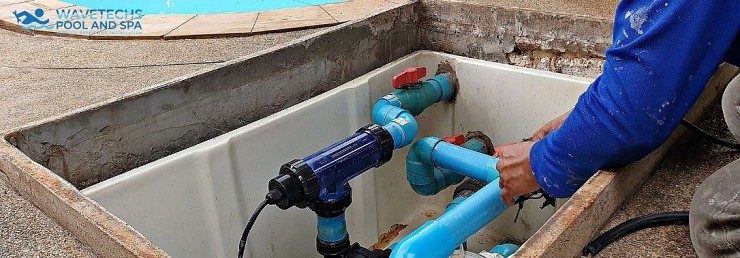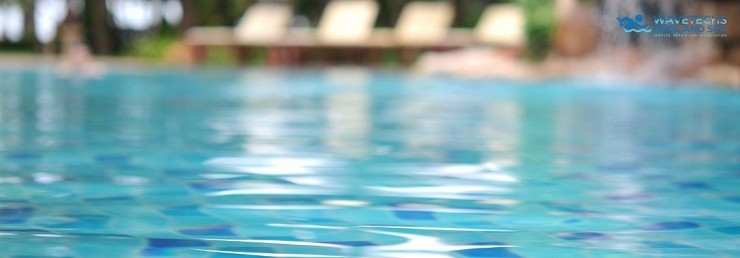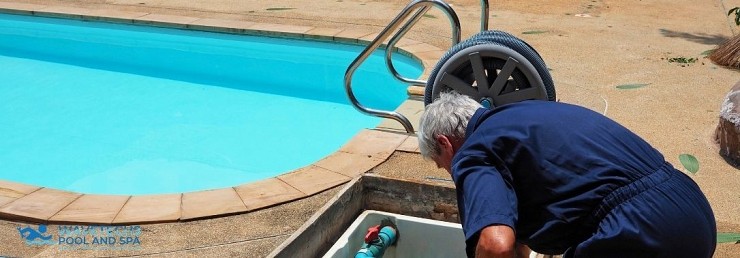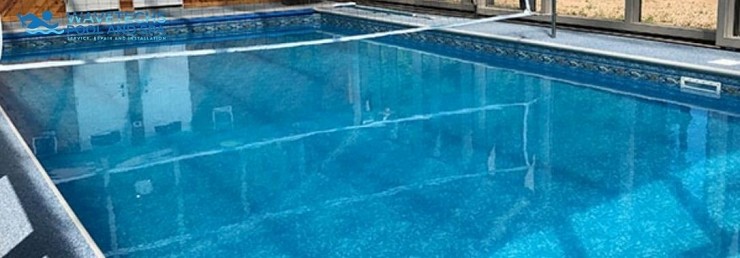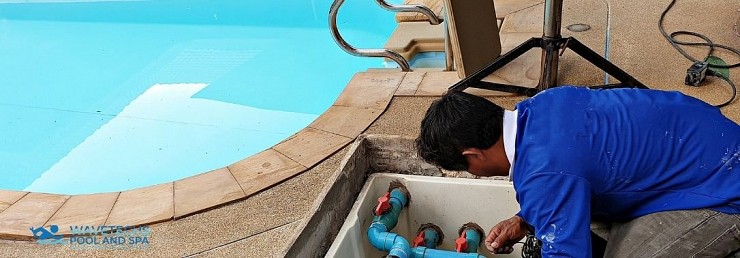
The pool pump is at the heart of your pool's circulation system, pumping clean and safe water through filters, heaters, and sanitizing systems. Like any mechanical part, however, pool pumps do have a limited lifespan. The most frequently asked question pool owners find themselves asking before a pool service in Southlake is how long a pool pump would actually last before it needs to be replaced. Knowing these signs of wear and tear and when to replace a pool pump is an integral part of having a functional pool.
Throughout this article, the average lifespan of pool pumps, variables affecting how long a pump is going to serve, signs that you may need a pool pump replacement, and tips for proper maintenance in order to maximize its lifetime will all be discussed.
Average Lifespan of a Pool Pump
A well-maintained pool pump typically lasts between 8 to 12 years. However, the actual lifespan can vary based on several factors, including the pump’s usage, the quality of the pool pump, and how well it's maintained.
Different types of pool pumps have slightly different lifespans:
- Single-Speed Pumps: The most basic and widely used type, these usually last around 7 to 10 years.
- Variable-Speed Pumps: These newer, more energy-efficient pumps tend to last longer, often between 10 and 15 years due to their optimized speed settings and reduced wear and tear.
Factors That Affect Pool Pump Longevity
Several factors contribute to how long your pool pump will last. By understanding these, pool owners can make informed decisions about maintenance and pool pump replacement.
Usage and Runtime
How frequently and how long you run your pool pump will greatly impact its longevity. If you live in a warmer climate or have a commercial pool where the pump runs for extended periods, the pump will naturally experience more wear and may require earlier replacement. For residential pools, running your pool pump 8-12 hours a day is typical, which should help balance longevity and performance.
Quality of Installation
Proper installation by a professional pool service technician is key. Poorly installed pool pumps often face operational issues that can shorten their lifespan. If your pump has frequent problems or strange noises, it may be due to improper setup, which can lead to early pool pump replacement.
Water Chemistry and Debris
Maintaining balanced pool water chemistry helps to reduce strain on the pump. High or imbalanced chemical levels can cause corrosion and buildup, which can wear out the pump components faster. Additionally, if your pool is prone to collecting large amounts of debris, such as leaves and dirt, it can clog and strain the pump, leading to more frequent repairs and earlier replacement.
Type of Pump
The technology in your pump plays a role in its longevity. Variable-speed pumps tend to last longer than single-speed models because they can operate at lower speeds, reducing stress on the motor and other components. While they may come with a higher upfront cost, their longer lifespan often makes them more cost-effective in the long run.
Maintenance Practices
Routine maintenance is critical in extending the life of your pool pump. Regular cleaning, proper water levels, and keeping the area around the pump free of obstructions can prevent the buildup of heat and debris that can shorten its lifespan. Pool service professionals can perform detailed inspections and provide timely repairs, helping you avoid premature pool pump replacement.
Signs It’s Time for a Pool Pump Replacement
Even with the best care, there comes a time when a pool pump needs to be replaced. Recognizing these signs early can save you from a complete system failure.
Noisy Operation
Unusual grinding, screeching, or rattling sounds indicate that the internal components of your pool pump may be worn or damaged. While minor issues like debris in the pump can be fixed, loud and persistent noises often mean the pump’s motor is nearing the end of its life, signaling the need for a pool pump replacement.
Decreased Water Flow
If you notice that the water flow in your pool has diminished significantly, it’s a strong indication that the pump is no longer functioning efficiently. This reduced water flow could mean the motor is losing power or that the pump is struggling to circulate water effectively.
Frequent Repairs
When repair bills start piling up, and you find yourself calling a pool service technician more frequently than usual, it may be time to consider replacing your pump. Frequent repairs can be a sign that your pool pump is on its last legs, and replacement may be a more cost-effective option in the long run.
Overheating
If your pool pump is constantly overheating or shutting off unexpectedly, it could be due to motor failure or electrical issues. This is not only a sign of an aging pump but also a potential safety hazard. In such cases, replacing the pump is the safest and most reliable solution.
Benefits of Timely Pool Pump Replacement
While replacing your pool pump may seem like a significant expense, there are several benefits to making the switch at the right time:
- Improved Energy Efficiency: Newer pool pumps, particularly variable-speed models, consume far less energy, leading to significant cost savings on electricity.
- Better Performance: A new pump will ensure your pool water remains clean, clear, and safe, reducing the risk of algae buildup and bacteria growth.
- Fewer Repairs: New pumps come with warranties and are far less likely to need frequent repairs, saving you time and money on maintenance.
Ensure your Pool Pump Operates Smoothly
Knowing how long a pool pump is supposed to last, and recognizing those signs that say it's time to replace one, will save you from a lot of headache when sudden breakdowns occur. Regular maintenance, along with timely replacement of the pool pump, keeps your pool seamlessly working for years. If you think that your pump is not far away from its last breath, then it will be better to call for a trustworthy pool service that will investigate the condition and suggest the best solution accordingly.
Call now!


